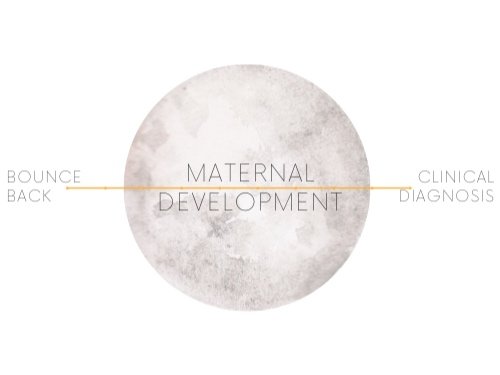What Is Maternal Development?
What Is Maternal Development?
And Why It's Time We Talk About It
The moment a baby is born, so too is a mother. But while we carefully track a child’s growth—milestones, feeding charts, developmental leaps—there’s often no parallel map for the mother’s evolution.
At the Center for Maternal Development, we believe it’s time to change that.
Maternal development is the psychological, emotional, and spiritual unfolding that takes place as a person becomes a mother. It is not a diagnosis. It is not a problem to fix. And it is certainly not a return to “normal.” Rather, it’s a deep and complex process of becoming—worthy of attention, reflection, and support.
Beyond the Binary: Fine or Diagnosed
In our current system, the support offered to mothers often falls into two categories: either clinical diagnosis and treatment (for postpartum depression or anxiety, for example) or a reassuring but dismissive “you’re fine.” But what about the vast middle? The mother who isn’t in crisis but also isn’t unchanged?
Many mothers find themselves in unfamiliar psychological territory—grappling with shifts in identity, heightened sensitivity, or existential questions. These are not symptoms. These are signs of development.
Change That Deserves Recognition
Maternal development includes—but goes far beyond—the visible tasks of caregiving. It touches every aspect of the self:
The emotional self, newly attuned to another’s needs while also navigating a flood of feeling.
The relational self, reshaped by changing partnerships, friendships, and family dynamics.
The spiritual self, often awakened in moments of awe, surrender, or deep connection.
The ego, softened or stretched by the demands of caring for someone utterly dependent.
This process is not linear. It is not always graceful. But it is profound—and when recognized, it can be transformative.
A Language for the Inner Life of Motherhood
Too often, mothers are expected to bounce back, to resume life as it was, as if nothing fundamental has changed. This cultural pressure—what we might call the myth of the unaffected mother—ignores the deep interior work that motherhood initiates.
By offering language, frameworks, and community for this process, we hope to make maternal development visible, valued, and supported.
Because every mother deserves more than survival.
She deserves to become.
